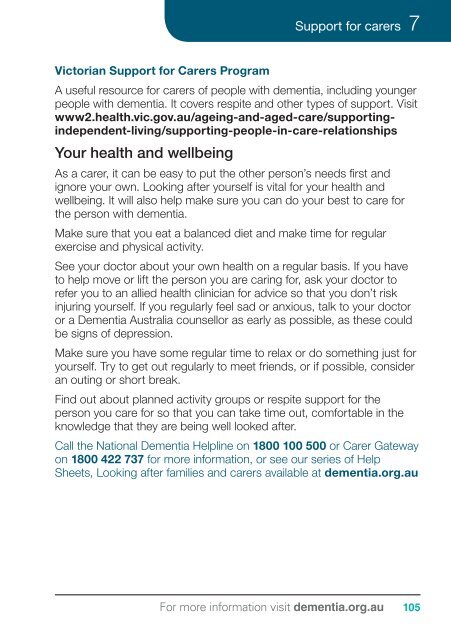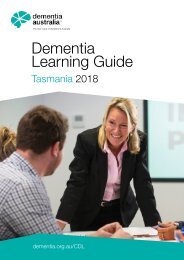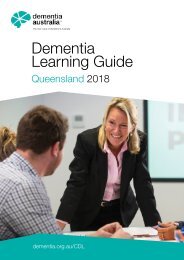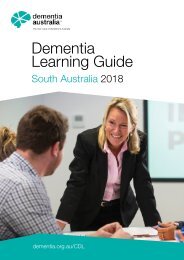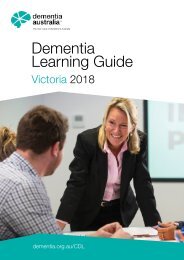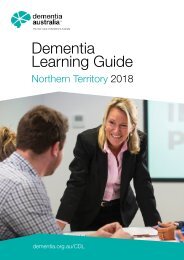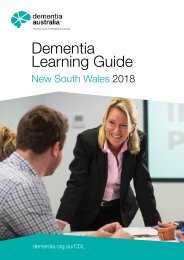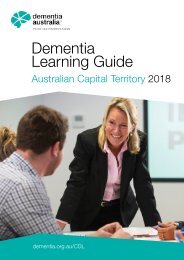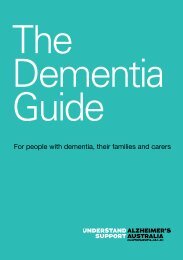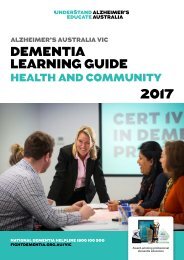Dementia Australia | The Dementia Guide
The Guide will also be used by the family and friends of someone with dementia, as it will contain information for anyone taking on a caring role. It will help people to understand more about dementia and the emotional impact of a diagnosis, the available drug treatments, and support and services that are available. It will include information about living well with dementia and about making plans for the future.
The Guide will also be used by the family and friends of someone with dementia, as it will contain information for anyone taking on a caring role. It will help people to understand more about dementia and the emotional impact of a diagnosis, the available drug treatments, and support and services that are available. It will include information about living well with dementia and about making plans for the future.
You also want an ePaper? Increase the reach of your titles
YUMPU automatically turns print PDFs into web optimized ePapers that Google loves.
Support for carers 7<br />
Victorian Support for Carers Program<br />
A useful resource for carers of people with dementia, including younger<br />
people with dementia. It covers respite and other types of support. Visit<br />
www2.health.vic.gov.au/ageing-and-aged-care/supportingindependent-living/supporting-people-in-care-relationships<br />
Your health and wellbeing<br />
As a carer, it can be easy to put the other person’s needs first and<br />
ignore your own. Looking after yourself is vital for your health and<br />
wellbeing. It will also help make sure you can do your best to care for<br />
the person with dementia.<br />
Make sure that you eat a balanced diet and make time for regular<br />
exercise and physical activity.<br />
See your doctor about your own health on a regular basis. If you have<br />
to help move or lift the person you are caring for, ask your doctor to<br />
refer you to an allied health clinician for advice so that you don’t risk<br />
injuring yourself. If you regularly feel sad or anxious, talk to your doctor<br />
or a <strong>Dementia</strong> <strong>Australia</strong> counsellor as early as possible, as these could<br />
be signs of depression.<br />
Make sure you have some regular time to relax or do something just for<br />
yourself. Try to get out regularly to meet friends, or if possible, consider<br />
an outing or short break.<br />
Find out about planned activity groups or respite support for the<br />
person you care for so that you can take time out, comfortable in the<br />
knowledge that they are being well looked after.<br />
Call the National <strong>Dementia</strong> Helpline on 1800 100 500 or Carer Gateway<br />
on 1800 422 737 for more information, or see our series of Help<br />
Sheets, Looking after families and carers available at dementia.org.au<br />
For more information visit dementia.org.au 105


